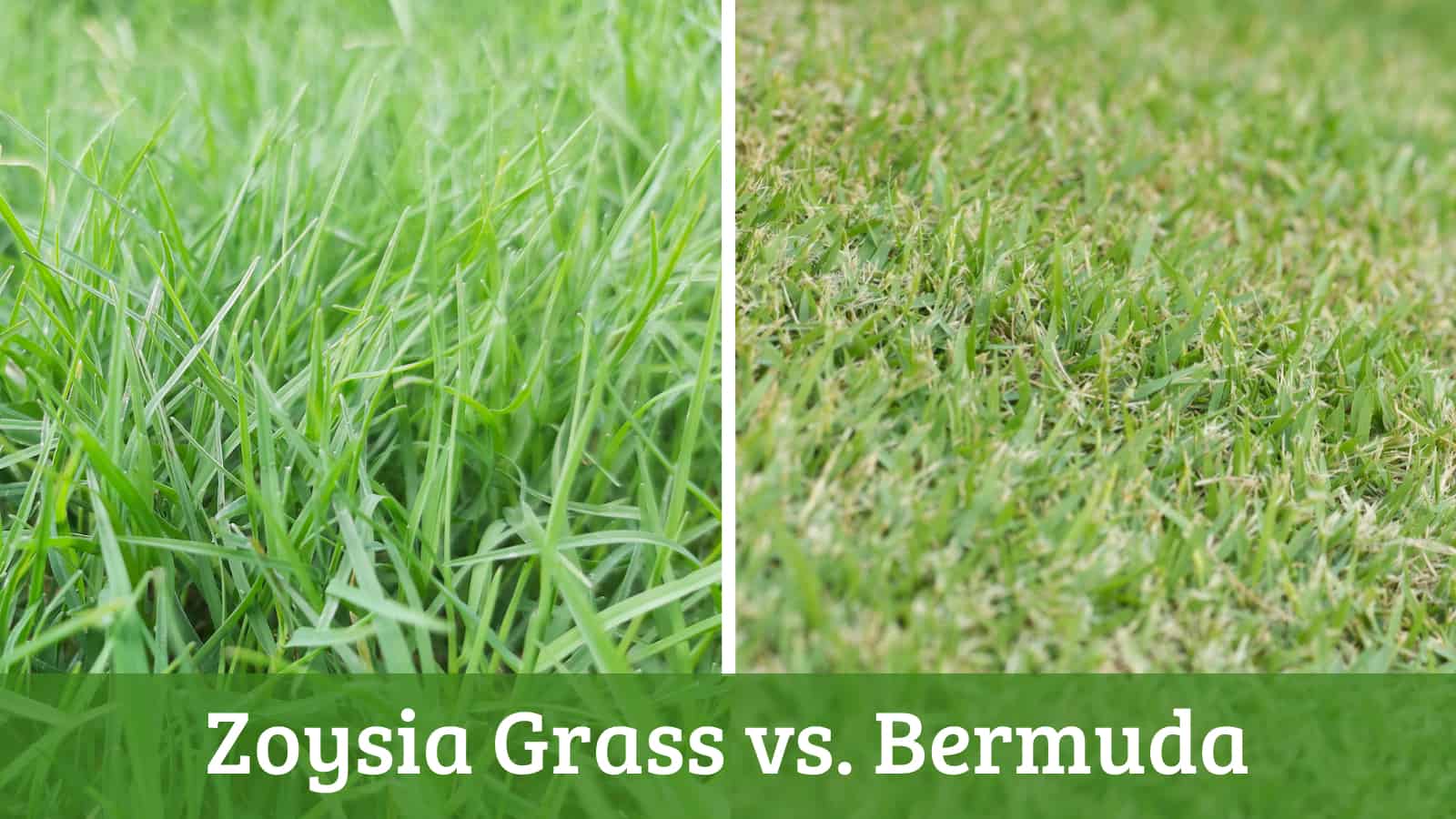The most significant difference between Zoysia grass and Bermuda is their weather tolerance. Zoysia will be fine in cool, shady locations, but Bermuda grass is a warm-season grass that requires heat and plenty of sunlight in order to thrive.
However, this isn’t the only difference between the two. Depending on where you live and the environment of your backyard, both may be required in your lawn care efforts.
Let’s take a quick look at the pros and cons of each grass type so you can decide which option is best for you.
Zoysia Grass vs. Bermuda
If you are searching for a grass seed that is going to help improve the look of your lawn, then you have come to the right place. We are here to discuss two great options, along with why we feel one may be better than the other.
Here are two types of warmer weather grasses that are popular amongst homeowners living in locations where the sun is always shining and the rain isn’t as plentiful as most grasses would like.
Zoysia Grass Overview
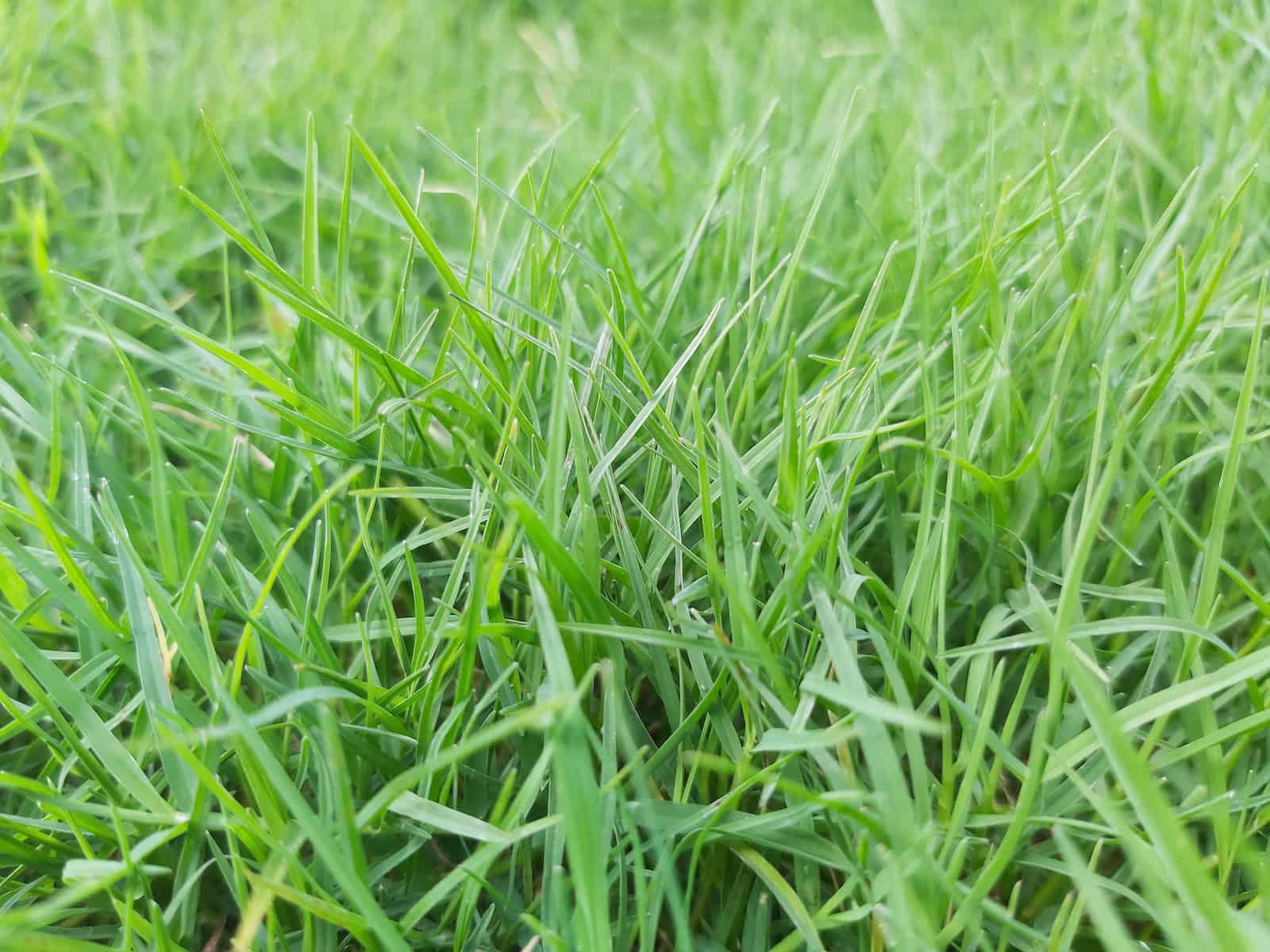
While Zoysia grass is primarily a warm-season grass that thrives best in high temperatures and lots of sun, it can hold its own in colder times.
Zoysia grass is best when planted as plugs instead of as a grass seed because of how invasive this species can be. That makes it perfect for thriving and taking over weeds, making lawn care a little less time-consuming.
If you are not a big fan of watering or mowing your lawn, this may be a good grass variety for you.
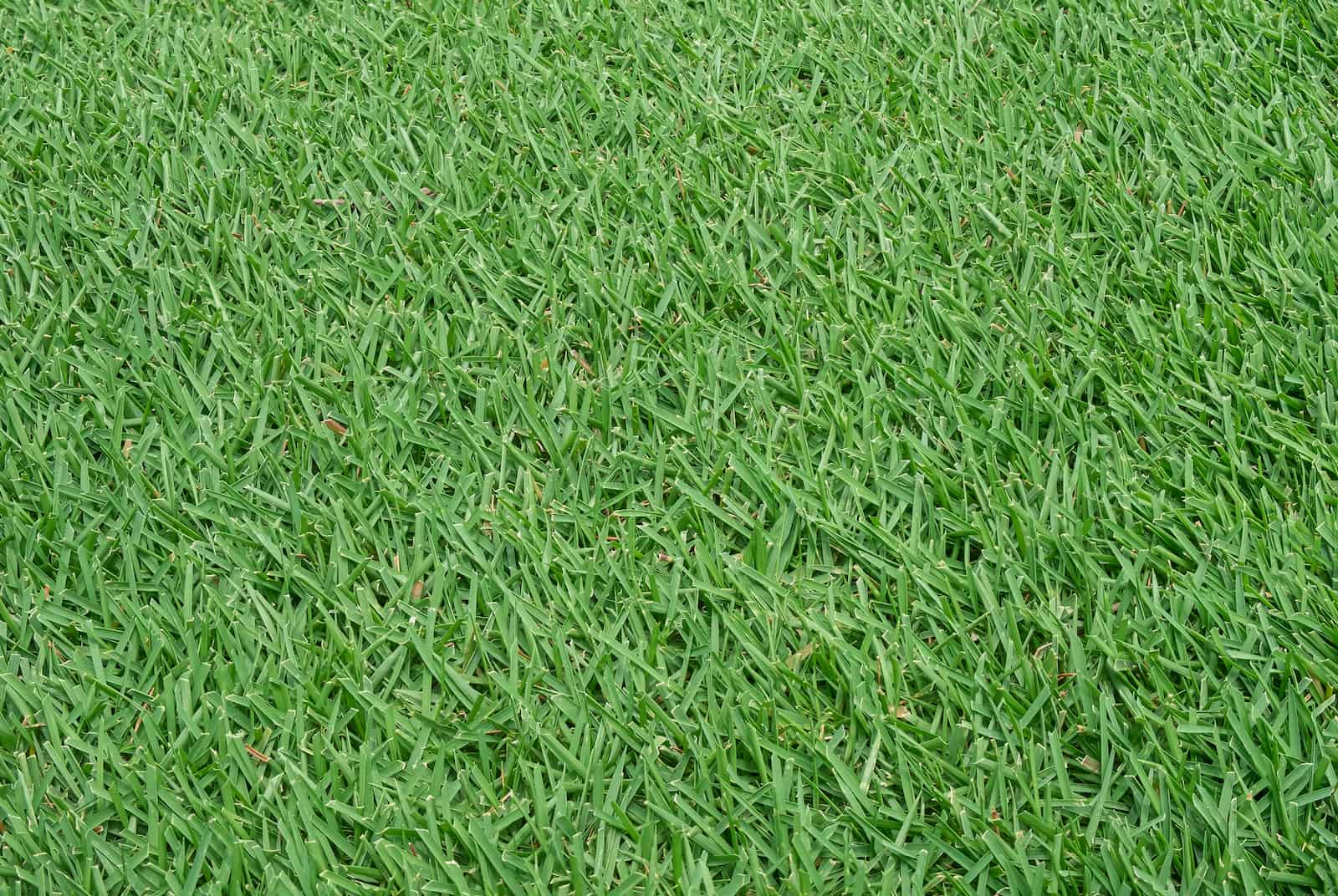
A Zoysia lawn is low-maintenance, and because it is a warm-season grass, it does very well during drought conditions. It will hold its natural vibrant green color a lot longer than most grasses that go without water.
Bermuda Grass Overview
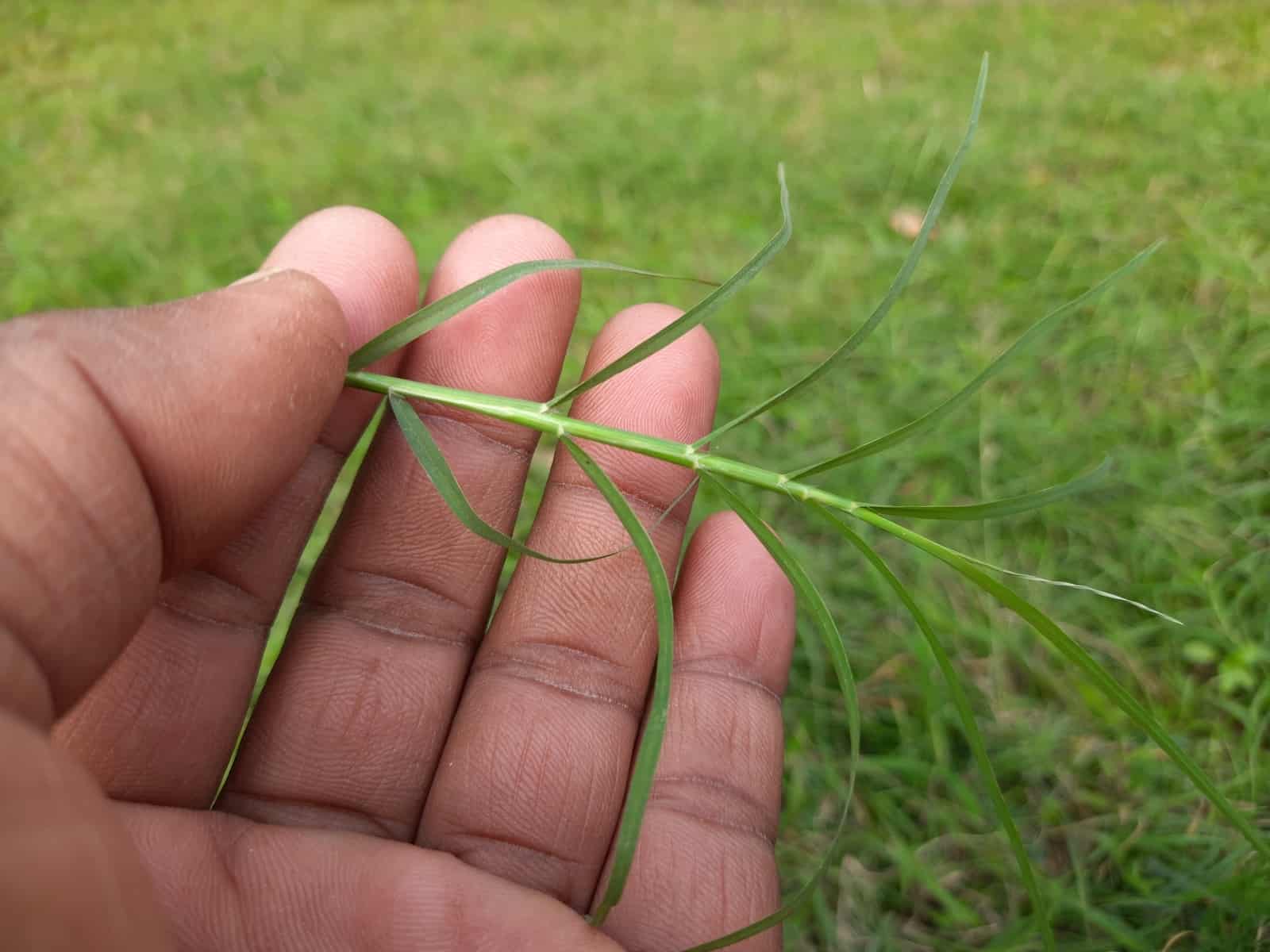
Bermuda grass, also known as Cynodon dactylon, is a hot weather species like Zoysia grass. Unlike Zoysia, hot weather is a requirement for Bermuda grass. Without full sunlight and warm temperatures, you will struggle to maintain a lush green lawn.
Bermuda grass is an invasive and aggressive grass that can cause a lot of issues for you if you don’t maintain it.
Because Bermuda roots make their way deep into the soil, it can be a huge hassle trying to remove this grass once it has taken root.
The good thing here is that it thrives so well in the proper conditions, so you can simply lay the grass seed and not have to deal with the struggles of sod or plugs.
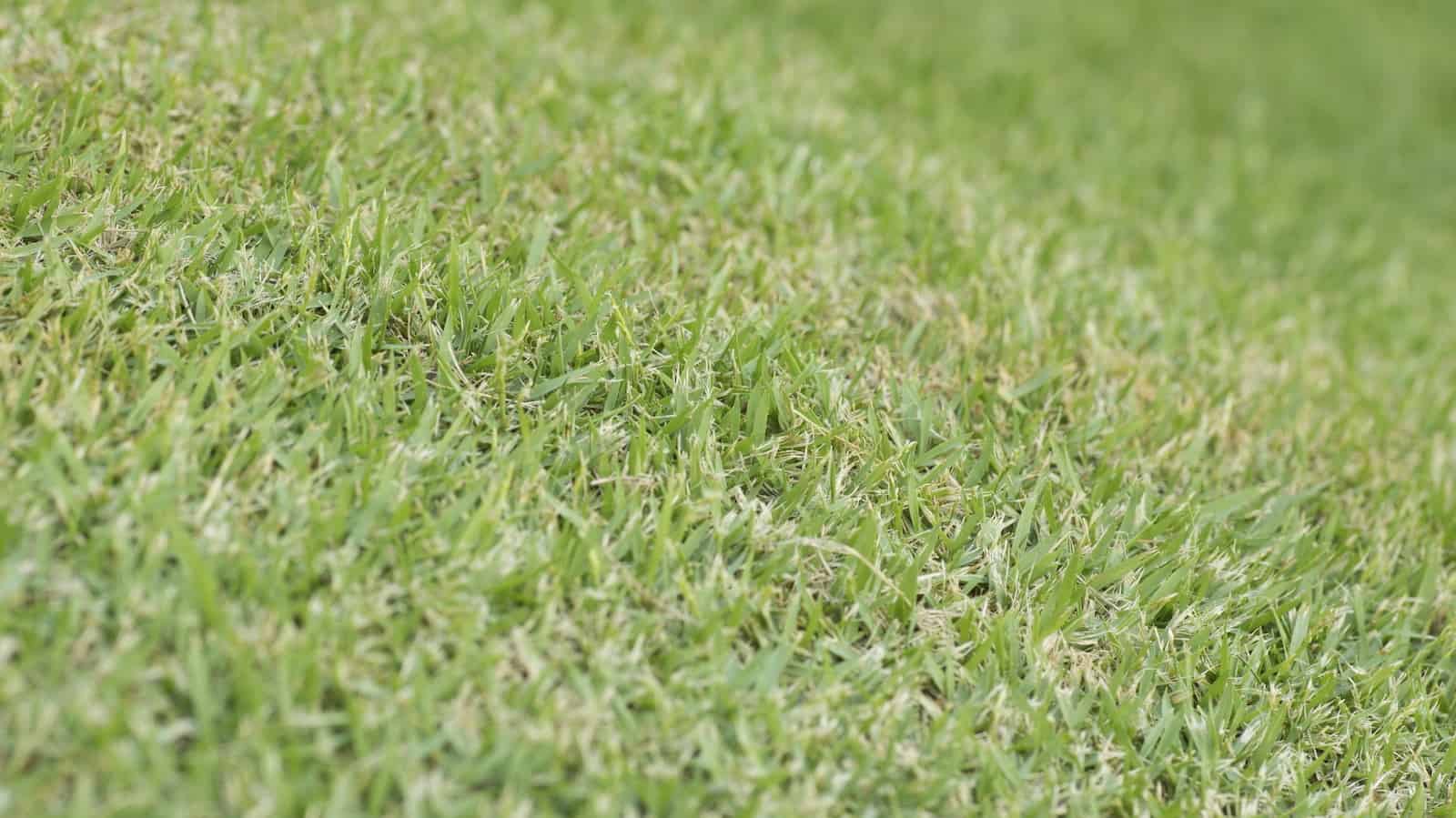
This particular type of grass doesn’t require a whole lot of water and will soak up the sun happily as long as you keep it well aerated.
I also like the fact that you don’t have to panic when taking a short vacation or forget to water your lawn for a few days, as this grass doesn’t need as much water as many other options.
One thing you do have to take into consideration when forgetting to maintain or taking a short trip is you will end up with overgrowth and a lawn in desperate need of mowing.
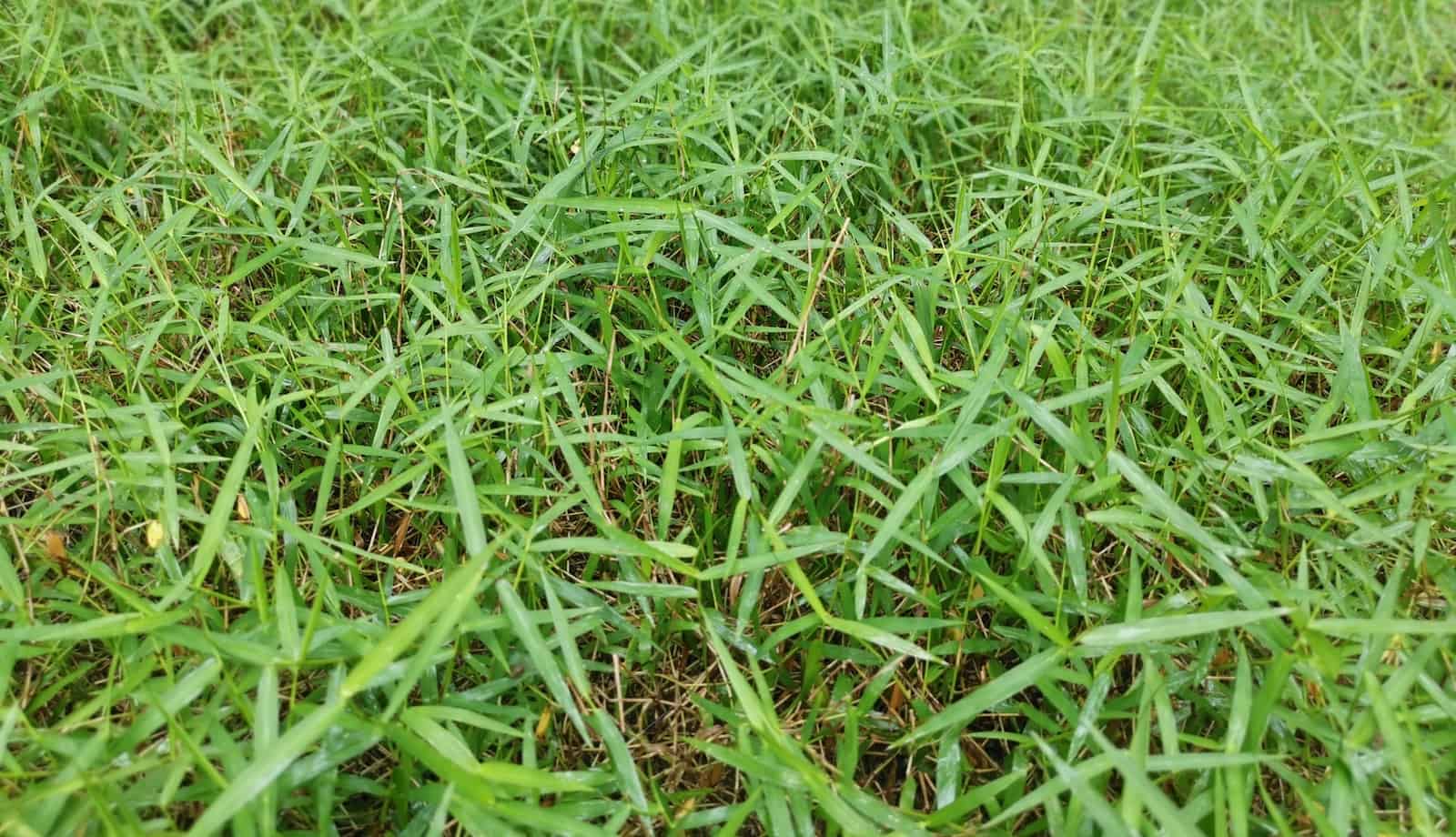
So, Which Grass is Better for Your Lawn?
Let’s make a quick comparison of the two to give you an idea of which is best for your lawn.
Which is More Invasive and Aggressive?
Both options are fairly invasive grass species that are well-known for overgrowth and invading the space of other grasses and weeds in the area.
However, while Zoysia grass is invasive, will clear out annoying weed patches, and do a great job covering up brown spots, Bermuda grass will hold on and take control a lot quicker.
Bermuda grass roots bury deeper into the soil and grow a lot faster than Zoysia. If planted in the same space, Bermuda grass will win.
The better option … Bermuda.
Which is More Durable?
If you have a family that loves to play outdoors and your backyard sees a lot of foot traffic, I feel both options can hold up pretty well. Both Zoysia and Bermuda grass are durable and strong; they both maintain their form better than most.
However, Bermuda grass is very sensitive to weather changes, especially dips in temperature or lack of sunlight. Either will cause it to lose its green color quickly.
While loving the sun, Zoysia will still hold up just fine if the temperatures are less than ideal.
The better option … Zoysia.
Required Maintenance
If you are searching for that one grass that will stay green and healthy without overstepping its boundaries when you are not exactly “regular” on maintenance, then you definitely want to go with Zoysia.
Zoysia grass also does much better with less fertilization, so you won’t have to worry about feeding it nearly as much as other grasses.
Bermuda grass is a rapidly growing, intrusive, and strong option that will provide you with a great-looking lawn. But it will also need frequent maintenance and perfect weather to stay vibrant and lush.
The better option … Zoysia.
Pros and Cons of Zoysia & Bermuda Grasses
Here’s a quick comparison of the two, side by side, to give you an overview of the pros and cons of each grass option.
Zoysia
Pros
- Prefers heat but does well in cooler temperatures and shade
- Keeps color in short droughts
- Low maintenance
- Doesn’t require tons of water
- Doesn’t need lots of fertilizer
Cons
- Can be invasive
- Color can be compromised in long stints of heat
- Can be hard to remove once rooted
- Can have thatch issues
Bermuda
Pros
- Requires less water than most grasses
- Drought- and heat-resistant
- Ideal for heavy foot traffic
Cons
- Can be difficult to remove due to deep rooting
- Requires frequent maintenance, especially mowing
- Must have full sunlight to thrive
- Very aggressive and invasive
The Verdict
While both types of grass are a great option, you can see Zoysia grass might be a little easier to plant, maintain, and keep up with.
However, if you are living in a location where there is consistent sunshine, warmer temps, and you frequently spend time playing in the yard, Bermuda is going to hold up to the rougher conditions.
It is hard to say which option is the best choice for each individual home. The best way to pick a better lawn grass is by doing your homework and choosing one that will fit your situation best.
Summing Things Up
We all want a beautiful lawn we can spend time in, and most of us would prefer something that doesn’t require a whole lot of time to maintain and treat.
If you live in an area where there are hot, humid temperatures and not a whole lot of rain, these are two types of grasses you might want to consider planting.
